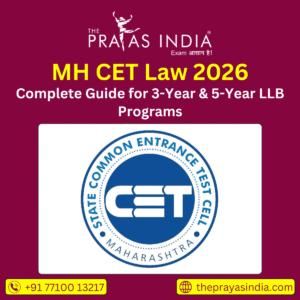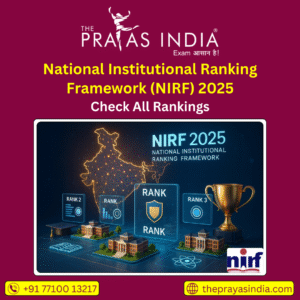National Human Rights Commission (NHRC): Roles, Powers, and Significance
The National Human Rights Commission (NHRC) is a vital topic for UPSC GS Paper 2 (Governance, Polity, and Social Justice). It represents a key statutory body ensuring the protection of individual rights to life, liberty, and dignity under the Protection of Human Rights Act, 1993. Understanding its composition, functions, powers, and limitations helps aspirants evaluate India’s human rights framework, administrative accountability, and balance between state authority and citizen welfare.
Introduction
Human rights in India represent fundamental entitlements ensuring life, liberty, equality, and dignity for all citizens. These rights, enshrined in the Constitution and recognized by international covenants, are essential for a just and equitable society. The need to protect and promote these rights led to the creation of dedicated institutional mechanisms like the National Human Rights Commission (NHRC).
Background
In the decades following Independence, instances of custodial violence, bonded labor, communal violence, and gender-based injustices highlighted systemic gaps in the protection of human rights. The growing international emphasis on human rights during the late 20th century, coupled with domestic activism and legal developments, necessitated the establishment of a national watchdog.
Establishment
The NHRC was constituted under the Protection of Human Rights Act, 1993 (amended 2006 & 2019). Its objectives are to investigate and address human rights violations, promote awareness, and advise governments on human rights-related policy and law.
Composition
- Chairperson: Must be a former Chief Justice of India or a Supreme Court judge
- Members:
- One former Supreme Court judge
- One former Chief Justice of a High Court
- Three members with knowledge of human rights, at least one woman
- Ex-officio members: Heads of National Commissions for Minorities, SCs, STs, Women, etc.
- Appointment: By the President, based on recommendations of a high-level committee (PM, Home Minister, Lok Sabha Speaker, Leaders of Opposition, Deputy Chair of Rajya Sabha).
- Tenure: Three years or up to 70 years of age.
Functions and Powers
- Inquire into complaints of human rights violations, either suo motu or by petition
- Visit prisons and detention centers, review living conditions
- Review constitutional, statutory, or international safeguards and make recommendations on human rights protection
- Undertake and promote research, awareness, and education programs
- Support and work with NGOs and voluntary institutions
- Submit annual reports to the President, laid before Parliament
Jurisdiction and Limitations
- Cannot investigate matters more than a year old, or anonymous, pseudonymous, or service matters
- Limited jurisdiction regarding armed forces; can seek reports but cannot initiate direct action
- Recommendations are advisory, not binding
- No power to penalize authorities or enforce compliance
- Focuses on violations by public authorities—not private parties
Major Cases and Achievements
- Custodial Deaths: Regular interventions and reporting to check police brutality
- Bonded Labor: Action plans with state governments for rehabilitation
- Women and Child Rights: Protection in cases of trafficking, violence, and abuse
- Disaster and Conflict Response: Relief, compensation, and policy advice in communal violence and natural disasters
- Investigation and monitoring of state compliance with international covenants
Criticism and Challenges
- Lack of binding powers: Recommendations often ignored by executive agencies
- Dependence on government machinery: NHRC must rely on police and local administration for investigations
- Backlog of cases and resource constraints hinder timely redressal
- Limited reach in cases involving armed forces or private actors
- Issues in the appointment process: perceived dominance of judiciary/government, inadequate representation of civil society
Reforms and Way Forward
- Amend the Protection of Human Rights Act to make NHRC’s recommendations partially binding
- Increase financial and administrative autonomy
- Expand jurisdiction over private parties and armed forces
- Ensure wider representation from civil society and human rights experts in appointments
- Digitization, efficient case management, and periodic review of human rights laws
- Regular training for law enforcement to sensitize them about human rights protection
Conclusion
The NHRC plays a vital role in protecting human dignity and accountability in India’s governance structure. While its limitations hinder robust enforcement, the commission remains a critical watchdog, raising awareness, intervening in egregious violations, and shaping a rights-based discourse in policy and law.
Constitutional and Legal Provisions Related to Human Rights
- Constitutional: Fundamental Rights (Articles 14–32), Directive Principles (Articles 36–51)
- Statutory: Protection of Human Rights Act, 1993
- International: India is signatory to ICCPR, ICESCR, and United Nations Human Rights instruments
Comparison: NHRC vs. State Human Rights Commissions (SHRCs)
| Feature | NHRC (National) | SHRC (State) |
|---|---|---|
| Establishment | Statutory (Protection of Human Rights Act) | Statutory (same Act, State-level) |
| Jurisdiction | Whole of India (except J&K under 370) | State government entities |
| Composition | Chairperson (ex-CJI/SC), other central appointees | Chairperson (ex-HC CJ), state appointees |
| Powers | Inquire, recommend, visit jails, promote awareness | Similar, but limited to the state |
| Reports | Parliament | State Legislature |
Frequently Asked Questions (FAQs)
Q1: What is the NHRC, and when was it established?
The National Human Rights Commission (NHRC) is a statutory body established on 12 October 1993 under the Protection of Human Rights Act, 1993. It acts as India’s national watchdog for protecting and promoting human rights.
Q2: Who appoints the NHRC Chairperson and Members?
They are appointed by the President of India on the recommendation of a committee comprising the Prime Minister, Home Minister, Speakers of both Houses, and Leaders of Opposition.
Q3: What are the primary functions of the NHRC?
NHRC conducts inquiries into human rights violations, visits jails and detention centers, promotes human rights awareness, and recommends corrective measures to governments. It can also act suo motu in serious cases like custodial deaths or police abuse.
Q4: What are the limitations of NHRC?
NHRC’s powers are mostly advisory, it cannot enforce penalties, and has limited authority in cases involving armed forces or private individuals. It also faces challenges like case backlog, fund constraints, and dependence on government machinery for enforcement.
Q5: How effective is NHRC in promoting human rights?
Despite structural limitations, NHRC has contributed significantly to protecting vulnerable groups, ensuring transparency, and promoting accountability in governance, but strengthening its autonomy is essential for improved effectiveness.








